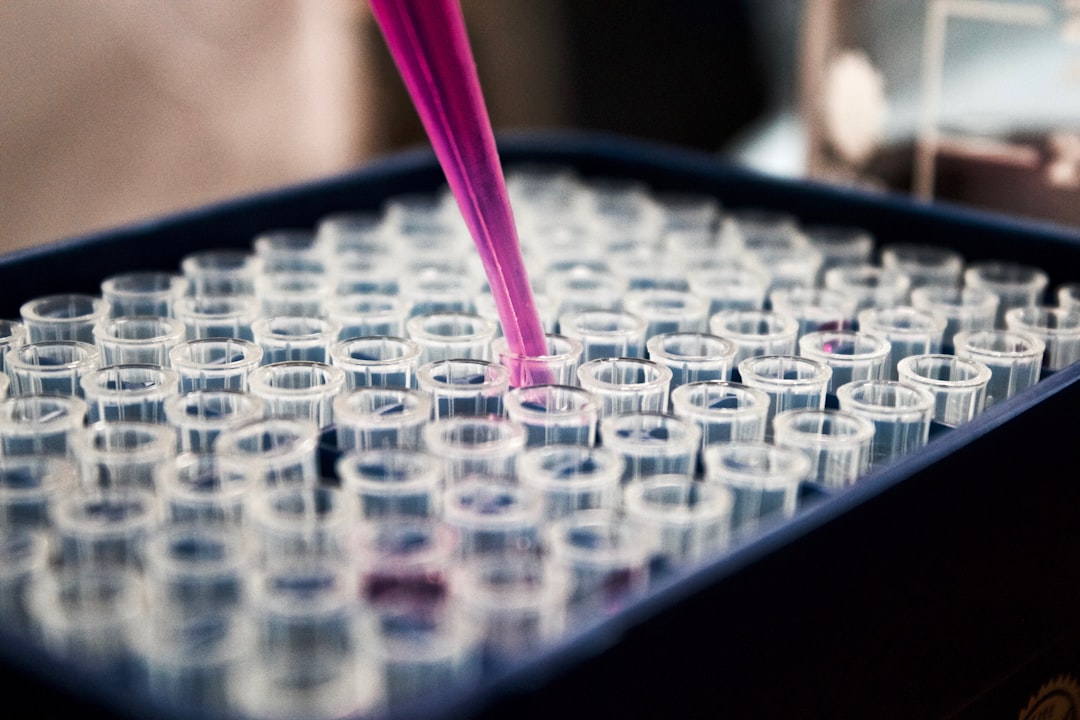What is it about?
Dengue virus is transmitted by mosquitoes and causes severe disease or death in many cases. Upon infection, dengue virus redirects many functions of the cell towards making new copies of the virus. These functions take place in many different parts of the cell, so viruses must follow wherever these occur. We have discovered that NS5, a dengue virus protein that is essential in viral replication, reversibly enters the nucleus and nucleolus of the cell when exposed to changes in pH. We think this process may be important in the viral life cycle or severity of disease progression. デング熱ウイルスは蚊に経て伝染し、重度病気と死を引き起こします。 デングウイルスは感染すると、ウイルスの新しいコピーの作成するために、細胞の様々な機能を制御します。これらの機能は細胞の様々な地域を起きるから、ウイルス部分も同じ地域に移行することが必要です。ウイルスの重要な部分の一つは、NS5というタンパク質です。本稿では、pHの変化の影響で、NS5は細胞質と核に可逆的に侵入することを発見しました。病気の重症度は代謝性アシドーシスに関連されるから、このメカニズムはウイルスのライフサイクルおよび病気の重度において重要であると仮定します。
Featured Image

Photo by Hal Gatewood on Unsplash
Why is it important?
This is the first report of a region of a protein specifically controlling its localization in cells in a pH-dependent manner. The onset of metabolic acidosis, where the pH of the body becomes too low and causes severe illness, correlates with the late stages of severe/fatal dengue virus infections. This is especially problematic in dengue patients experiencing hyperglycemia, where the onset of metabolic acidosis is reported to be much more rapid. Understanding how and why pH changes play an important role in dengue virus pathology could allow new treatments to prevent the onset and consequences of severe disease. 本稿は、pH依存性なタンパク質の得意性的な移行メカニズムの最初報告だとおもいます。デング熱ウイルスの病気の重症度は代謝性アシドーシスに関連ですから、このメカニズムは高血糖症では特に重要かもしれない。したがって、pH変更はデング感染に重要な役割を果たす理由を明確することによって、重度病気を予防している新薬が開発するのを可能になると思います。
Perspectives
Stresses including severe changes in pH are normally well controlled by the body. During severe dengue infection, it could be that NS5 enters the nucleolus to manipulate these stress responses of the cell, thereby conferring advantages for viral replication while causing more severe disease. It will be interesting to discover what other viral proteins behave in this way and whether blocking this activity has antiviral activity or is associated with other positive treatment outcomes.
Dr. Steven Heaton
RIKEN Center for Integrative Medical Sciences
Read the Original
This page is a summary of: Dynamic Nucleolar Targeting of Dengue Virus Polymerase NS5 in Response to Extracellular pH, Journal of Virology, April 2016, ASM Journals,
DOI: 10.1128/jvi.02727-15.
You can read the full text:
Resources
Contributors
The following have contributed to this page










